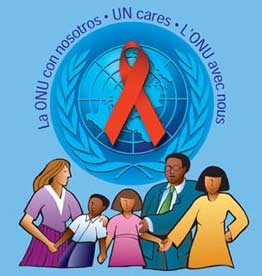On May 31, 2006, the High-Level Meeting on HIV/AIDS of the United Nations General Assembly commenced at UN headquarters in New York City, USA, attended by numerous national and governmental leaders, as well as representatives from international organizations and civil society worldwide. The Vietnamese delegation, led by Comrade Pham Gia Khiem, a member of the Politburo of the Central Committee of the Communist Party and Deputy Prime Minister of the Government, participated in the opening session along with various other activities within the framework of the conference.
 |
(Photo: UNAIDS) |
In his opening speech at the conference, UN Secretary-General Kofi Annan affirmed that the special session of the UN General Assembly on HIV/AIDS five years prior had marked a significant turning point in the international community’s joint efforts to prevent the spread of this epidemic and to provide treatment for those affected. Based on the Declaration of Commitment, member states adopted a series of measures with specific and time-bound goals aimed at enhancing the fight against HIV/AIDS at national, regional, and global levels. According to Mr. Annan, efforts to mobilize financial resources for combating HIV/AIDS have also achieved encouraging successes with the official establishment of the Global Fund.
However, Mr. Annan acknowledged that many countries have not yet met their goals for HIV/AIDS prevention and control. Efforts in education, outreach, and counseling regarding HIV/AIDS for the younger generation have not been truly effective in some countries. Meanwhile, measures to prevent HIV/AIDS among women and girls have been implemented very slowly, posing significant challenges to collective efforts. Mr. Annan urged leaders to enhance their commitments to advance national strategies that protect women and girls from the risks posed by the HIV/AIDS pandemic. Immediately following the opening session, Vietnamese delegates participated in roundtable discussions and expert panels on experiences in HIV prevention as well as long-term strategies for responding to the HIV/AIDS epidemic.




















































